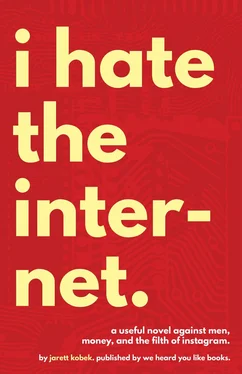Global warming and climate change were the methods by which the human species, plagued by guilt and unacknowledged depression, committed suicide.
The mechanisms of this suicide were eating too much beef, operating too many electronics and driving too many cars.
The title of Done Because We Are Too Menny was taken from Jude the Obscure, a Nineteenth Century novel by Thomas Hardy.
Jude the Obscure is about the misery which falls upon working class people if they ever make the mistake of hoping that they can achieve.
Jude the Obscure was written before the iPhone had changed everything. In the Twenty-First Century, after the iPad changed everything, the message of Jude the Obscure no longer resonated because all working class people listened to the music of Beyoncé on their Apple products.
They could achieve anything as long as they worked hard enough and believed in their dreams and followed their passions.
Anyway, in Jude the Obscure, one of Jude’s children murders Jude’s other children and then hangs himself. He leaves a suicide note that reads: “Done Because We Are Too Menny.”
Adeline saw this as a perfect metaphor for climate change and overpopulation. So she created a plotless 64-page long comic book.
Done Because We Are Too Menny received nice reviews on the Internet, particularly from middle-aged men like Jeff Lester and Graeme McMillan.
It sold poorly.
Graeme McMillan and Jeff Lester were partners in an Internet podcast called Wait, What? Neither man had any eumelanin in the basale strata of their epidermises.
Jeff Lester’s WaNks Index Score was 73.24857142857143.
Graeme McMillan’s WaNks Index Score was 9.583211678832117.
The word podcast was a shitty neologism with the generalized meaning of an audio program distributed over the Internet. In the case of Wait, What? the program was two guys talking about comic books for two hour chunks of time.
This concept would appear to be terrible. Who wants to hear comic book guys talk to each other about comic books?
Yet in its execution, Wait, What? was fascinating.
Jeff Lester was a master in the art of rambling, a conversational shambler from the stars. Graeme McMillan was concise and insightful and tormented by having dedicated so much of his life to comic books.
The interplay was compelling.
Jeff Lester lived in San Francisco.
At the exact moment that Adeline, Christine and J. Karacehennem were talking in Sparky’s, Jeff Lester was wandering around the city, doing something weird and incomprehensible. Possibly annoying his wife.
Anyway, it was Jeff Lester who came up with one of this bad novel’s central ideas. It was Jeff Lester who realized that the American comic book industry is the key to the Twenty-First Century.
Here is Jeff Lester on the very topic:
“It’s really hard to tell if the comic industry has changed for better or worse, in no small part because the comic industry more or less conquered the world. And I’m not just talking about the proliferation of superhero movies or whatever: I mean that the practices of the industry — dubious labor practices obscured by an endless supply of willing freelancers, the emphasis of brands over individuals (unless it’s to celebrate how well an individual is serving a brand), the constant need for content — are now how so many other industries operate. All the talk we hear about the creative class, even as they’ve been turned into people on an assembly line, tasked with turning out so many listicles or reality TV shows in order to survive? Comics did that first and best.”
“Adeline says you’re a maniac about Google,” said J. Karacehennem to Christine. “She says you got all kinds of crazy ideas.”
“Don’t make me regret introducing you, hombre. I never the once said her ideas are mad, did I? All I said is that Christine had gone into the realm of the très outré . Which any person would admit.”
“It’s okay,” said Christine. “It is kind of crazy. It’s worked so far. I’m still not evicted. My landlord hasn’t converted the building.”
“What’s worked so far?” asked J. Karacehennem.
“I’ve started praying to Google,” said Christine. “I offer obeisance to our masters.”
“I’ve been in San Francisco too long,” said J. Karacehennem.
Christine’s idea was simple. She had examined Ancient World mythologies and interpreted the divinities as symbolic and archetypal representations of universal human struggles.
The most applicable pantheon was that of the Ancient Greeks. The Greek Pantheon was the one where the gods were the most childish and thus the most like the brain trust of the Bay Area. Also, Christine respected the influence of the Greek Pantheon on present day Western thought.
Once Christine isolated the various archetypes, she began looking for analogues in the various personages associated with Google.
“The most important thing to understand about Google,” said Christine, “is that it’s a company of liars. Their entire business model is lying. Advertising is the art of lying in such a way that everyone knows you’re lying but no one will call you out on it, because you’ve disguised your lies behind money.
“If you want to know why the Bay Area is so messed up, it’s simple. Other than Apple, the primary revenue stream of every other company is advertising. There is no way to make money off the Internet itself other than advertising. We are living in the biggest advertising economy that the world has ever seen, and no one will admit it.”
“I have a theory,” said J. Karacehennem, “That all money and technology is embedded with the ideology of its origin. You should Google ‘packet switching.’ It will explain everything. Advertising itself explains why everyone in the Bay Area is so full of shit and no one can tell the truth.”
“Because they are advertisers,” said Christine. “They can’t say that they work in advertising. So they lie about what they do. Google wants us to believe that they’re changing the world and offering a million services for free and that we’re all part of the same team, but they’re lying. All Google does is serve advertisements. Nothing else makes money.
“They are liars and I pray to liars.”
Christine saw all the founders and key players in Silicon Valley as new gods, like the New Gods created by Jack Kirby while he worked-for-hire at DC Comics, and Christine arranged them accordingly.
Larry Page, the CEO and co-founder of Google, was like Hephaestus because Hephaestus was the physically debilitated God of artisans and creators. Hephaestus was the out-classed God, like Larry Page was the outclassed CEO who wrested back control of the company in 2011 and forced it to start a social networking platform which everyone thought was terrible. Then Larry page bought Motorola, a maker of cellphones that was losing money and continued to bleed money. Christine didn’t know it, but by 2014, Google would sell Motorola at a $12,000,000,000 loss. Just like Hephaestus had a sham marriage to Aphrodite that required keeping up appearances, Larry Page was considered a good CEO because Google’s core business of advertising made so much money that no one noticed that Larry Page was bad at his job and operated off the principle that unexamined growth was a successful strategy for the future.
Sergey Brin, the other co-founder, was like Dionysius, the god of sex and drugs and revelry. Sergey Brin had rebranded himself as the head of Google X, Google’s nonsense experimental lab which developed faddish technologies like wearable computers and cars that could drive themselves and dogs that didn’t need to clean their genitals. These technologies would amount to nothing. They were banal visions of the future as imagined by the fans of Science Fiction. Google was an advertising company. Every time the company released a physical commodity, that commodity failed. Google X’s real purpose was an advertisement for the mythical vision of Google as a company of innovation. Google X was Google lying about the company’s actual function, using the methods of advertising to obfuscate its revenues derived from advertising. Google X was the pointless indulgence of one of the world’s richest men. It was Sergey Brin’s hobby. It was his awkward way of picking up chicks. It was the absolute heights of decadence. In any practical sense, Sergey Brin had left Google. He was a middle-aged party boy with weird mistresses and a habit of going to Burning Man every August. Burning Man was a big party in the desert where Sergey Brin would pretend like money didn’t matter and that he wasn’t a capitalist. He would surround himself with younger naked people who were high on drugs and dressed like low-rent circus performers and who were simply thrilled to be around someone famous.
Читать дальше












